Archaeologists in Croatia have unearthed a 1,800-year-old fossil of a Roman chariot and two horses

Archaeologists in Croatia have unearthed a 1,800-year-old fossil of a Roman chariot and two horses
A team of archaeologists working in Croatia have found an ancient Roman chariot buried together with two horses in ritual fashion
The fossilized remains were found in a large burial chamber which belonged to an ‘ extremely wealthy family ‘ alongside the carriage that the two horses would have pulled once, presumably.
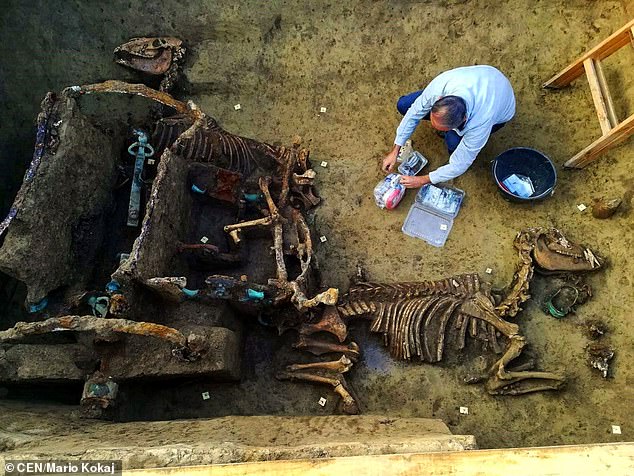
The incredible discovery was made by the Vinkovci City Museum archeologists and the Zagreb Institute of Archeology. They found the chariot at the site called Jankovacka Dubrava, near the village of Stari Jankovci in eastern Croatia, known in Roman times as a cisium.
The discovery is an extremely well-preserved example of how very wealthy Roman citizens, as they believed, would choose to join the next life alongside their possessions and animals
Museum curator Boris Kratofil clarified that for the Romans in the south of the Pannonian Basin, the burial completed with a tumulus or burial mound, was unusual. Pannonia was a Roman province covering a wide area of what we now know as Eastern Europe.
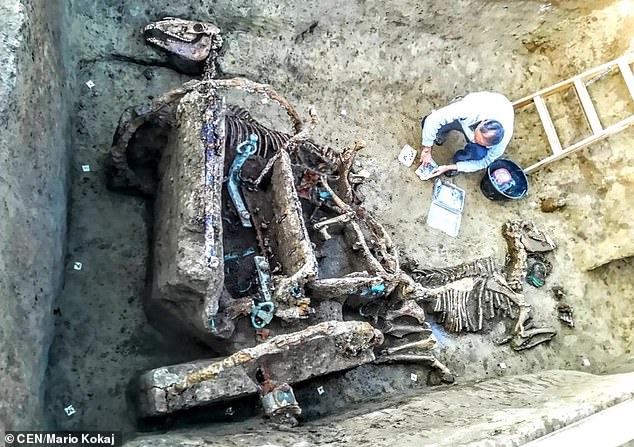
Kratofil explained: “The custom is associated with extremely wealthy families who have played a prominent role in the administrative, social and economic life of the province of Pannonia.”
The next job for the team of scientists is to ascertain how old the find is. They’ve so far estimated that it dates back to the third century AD.
Marko Dizdar, director of the Institute of Archaeology in the Croatian capital, added that the discovery is the only one of this kind to ever be found in the country.
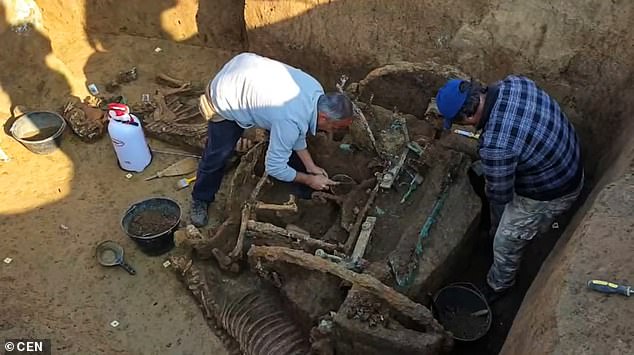
He said: “After this comes a long process of restoration and conservation of the findings, but also a complete analysis of the findings.
“In a few years, we will know a little more about the family whose members were buried in this area 1,800 years ago.
“We are more interested in the horses themselves, that is, whether they were bred here or came from other parts of the empire, which will tell us more about the importance and wealth of this family.
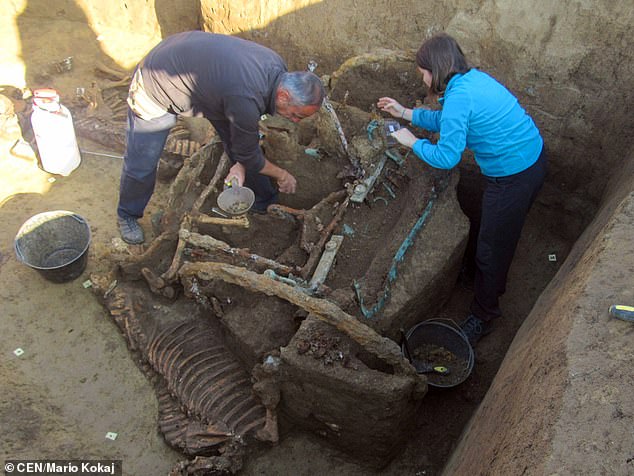
“We will achieve this through cooperation with domestic as well as numerous European institutions.”
The Romans invaded and took over Croatia in 168 BC after driving out the native Illyrian people, pushing them back into what we now call Albania.
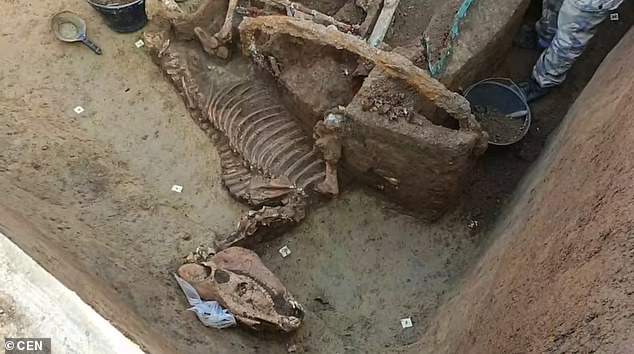
They continued to control the area until the Roman Empire started to crumble at around the 5th century AD.